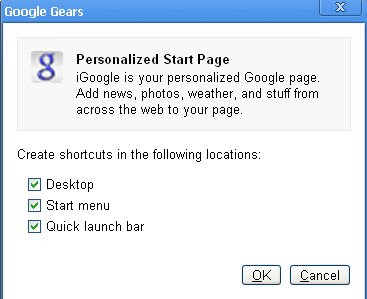Google has released its own web browser in a long-anticipated move aimed at countering the dominance of Microsoft's Internet Explorer and ensuring easy access to its market-leading search engine.
The free browser, called "Chrome", is supposed to be available for downloading on Tuesday in more than 100 countries for computers running on Microsoft's Windows operating system. Google said it's still working on versions compatible with Apple's Mac computer and the Linux operating system.
Until now, Google had been trying to undermine Internet Explorer by supporting Firefox, a web browser developed by the open-source Mozilla Foundation. Bolstered by an advertising partnership with Google's search engine, Firefox ranks as the second most popular browser, with a market share of more than 10%. Google recently extended its advertising alliance with Firefox through 2011. Bearing the stamp of Google's renowned brand, Chrome could be an even more formidable rival to Explorer.
Google is worried that Microsoft could abuse its power by manipulating Internet Explorer's default settings in a way that might diminish traffic to Google's search engine, which serves as the hub of the largest online ad network.
Microsoft's Internet Explorer is the No. 1 web browser with a 72.2 percent market share, followed by Mozilla's Firefox at 19.7 percent and Apple's Safari at 6.4 percent, according to Net Applications.
Features of new Google web browser CHROME:
01 ) To make things even faster, Chrome will use a new JavaScript Virtual Machine from Denmark called V8.
02) To deal with the new types of demands users make of web browsers, Chrome will use multi-processing to handle all those demands, giving each element of a page (a JavaScript Command, a Flash video) its own memory and process, instead of the single-threading architecture used by today's browsers. Multi-threading should make Chrome faster and more secure.
03) New tabs, above the address bar, will handle those different processes. So JavaScript threads will be in one tab and a video in another, allowing each to load simultaneously, reducing memory load, and ensuring that one bug in a page doesn't crash the whole site (or whole browser), just that tab.
04) When you start typing in the address bar, Chrome offers suggestions to autocomplete your request--and not just based on your history and bookmarks like Firefox does, but also based on the most popular web sites as calculated by Google. You can even search a site from the address bar by typing a site name and hitting tab.
05) This one is on par with IE8 and the newest version of Firefox: a privacy mode, where you can browse without anything from the session being written to your computer--no cache, no history, no cookies, nothing. (Dubbed "porn mode" by most blogs, but with serious applications, such as public browsing, as well.)
06) Chrome is being built on WebKit, the basis of Apple's Safari browser and the browser in the Google Android mobile platform, and using Google Gears, a web applications plug-in/platform.
07) Convenience is further advanced by a personalized home page with screenshots of the pages you visit most.

08) It's extra secure; the browser includes Google's ever-growing list of spyware and malware sites, and every tab is "sandboxed," which means whatever happens in the tabs can't affect your computer.. And no more pop-ups, not even JavaScript ones. Every pop-up is contained in the tab in starts in, collected as a small link on the bottom of the page. You can drag it off the page to see it, but it won't pop up without your permission. 
Friday, September 5, 2008
Features of new Google web browser CHROME
Labels:
chrome,
features,
google,
web browsers
Subscribe to:
Comments (Atom)